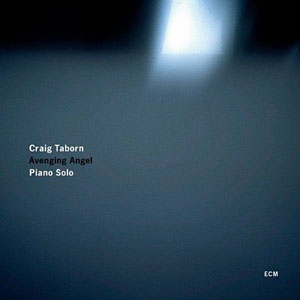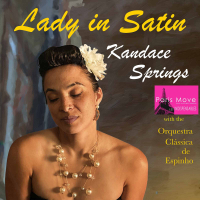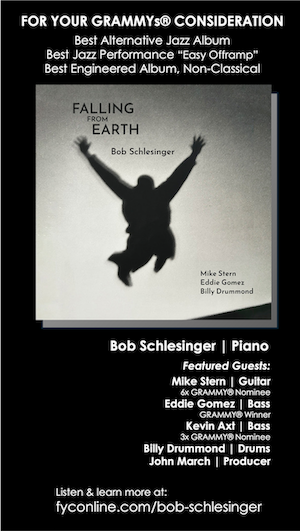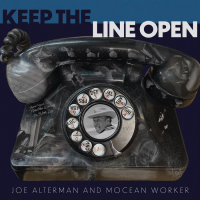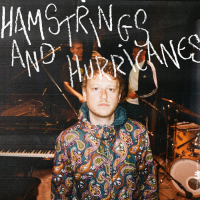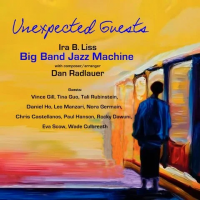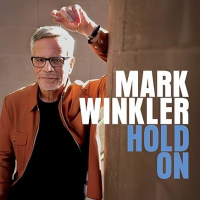Home » Jazz Articles » Extended Analysis » Craig Taborn: Craig Taborn: Avenging Angel
Craig Taborn: Craig Taborn: Avenging Angel
On a label that, amongst many other accolades, has virtually single-handedly defined the remarkably high bar for the art of solo piano performance, Taborn joins a prestigious elite, rubbing shoulders with legacy pianists like Paul Bley and Chick Corea, and more recent contributors of lesser renown but equal esteem, including Marilyn Crispell, Jon Balke, Francois Couturier and Stefano Bollani—not to mention the man considered, by some, to be the litmus test of the genre, Keith Jarrett. While Taborn does, indeed, pull music from the ether with remarkable spontaneity, inherent virtuosity and expansive musical knowledge akin to Jarrett, he contrasts the iconic pianist's stream-of-consciousness approach with a more focused working of found motifs, exploring every nook and cranny of sometimes simple, other times almost impossibly complex spontaneously composed conceits—mining every seam while knowing precisely when he's reached the end of a path, with rare instinct and unerring accuracy.
Taborn unfolds the delicately ascending and cascading lines that form the basis of the relatively brief "Glossolalia," gradually building them in intensity, angularity and turbulence, even as he directs them—not so much through repetition, but more through a series of expanding lines moving upwards and outwards from the center—only to have them settle again, like ripples in a pond. Elsewhere, on "Diamond Turning Dream," a simple motif of but a few spare notes becomes an exercise in nuanced development, as Taborn shifts emphasis through dynamics and subtle temporal flexibility—a particular revelation of the remarkable natural acoustics in the recital room at Lugano, Italy's Studio RSI, where the pianist recorded Avenging Angel over two days, in the summer of 2010.
Taborn's primary purview may be jazz, but his sources reach far beyond even its furthest frontiers, the beginning of "This Voice Says So" referencing the tintinnabulism of Arvo Part and pieces like the Estonian composer's "Für Alina." Still, at the half-way mark, he breaks out of the delicate repetition of one note at the piano's extreme upper register to a more assertive stance that builds to a dramatic, maelstrom-like exploration at both ends of the instrument, ultimately resolving, again very Pärt-like, in its final two minutes, as a simple three-note motif with painstaking support, as it fades to slowly to black.
While it's never the raison d'être, Taborn's virtuosity is especially vivid on "Gift Horse/Over the Water," where a knotty left-hand pattern, peppered with unpredictable voicings by the right, suddenly assumes even greater power when both hands suddenly engage in contrapuntal interaction, leading to one of the few points where Avenging Angel feels like traditional soloing over a form, even though the form was pulled from the same empty space.
With conceptual specificity providing its distinct approach at a time when so many pianists are exploring the solo context, Avenging Angel stands well above most. As exhilarating as it is serene, and as evocatively melodic as it is unsettlingly recondite, it's a masterpiece of invention and evocation that places Taborn squarely amongst those other esteemed pianists who've contributed to ECM's pantheon of significant solo recordings.
Tracks: The Broad Day King; Glossolalia; Diamond Turning Dream; Avenging Angel; This Voice Says So; Neverland; True Life Near; Gift Horse/Over the Water; A Difficult Thing Said Simply; Spirit Hard Knock; Neither-Nor; Forgetful; This is How You Disappear.
Personnel: Craig Taborn: piano.
Personnel
Craig Taborn
pianoAlbum information
Title: Craig Taborn: Avenging Angel | Year Released: 2011 | Record Label: ECM Records
Tags
Comments
PREVIOUS / NEXT
Support All About Jazz
 All About Jazz has been a pillar of jazz since 1995, championing it as an art form and, more importantly, supporting the musicians who make it. Our enduring commitment has made "AAJ" one of the most culturally important websites of its kind, read by hundreds of thousands of fans, musicians and industry figures every month.
All About Jazz has been a pillar of jazz since 1995, championing it as an art form and, more importantly, supporting the musicians who make it. Our enduring commitment has made "AAJ" one of the most culturally important websites of its kind, read by hundreds of thousands of fans, musicians and industry figures every month.


